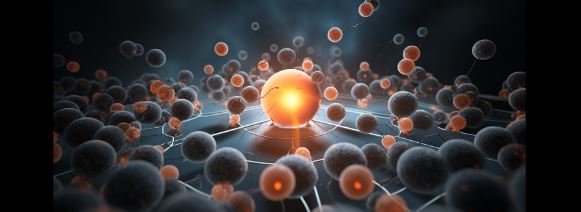Nicotinamide adenine dinucleotide (NAD+) is a valuable element present within our bodies. This coenzyme is essential for diverse key biological processes, including cellular metabolism, energy production, and most importantly, aging. In this article, we will delve deeper into understanding NAD+ and its role in maintaining our overall health.
The Key Role of NAD+ in Cellular Energy Production
The fundamental role of NAD+ in biological systems is to facilitate the conversion of nutrients into cellular energy, or ATP. ATP, or adenine triphosphate, is the main energy currency of the cell, and it is responsible for providing energy to drive a myriad of cellular reactions. NAD precursors can boost the body’s NAD+ levels and their benefits are currently being studied in detail. NAD+ facilitates this process by taking part in oxidation-reduction reactions within the cell. These reactions involve the transfer of electrons from one molecule to another and are needed for our cells’ survival and function.
NAD+ and its Impact on Aging Process
Increasingly, scientific research is finding that aging is intimately connected with declining NAD+ levels. As we age, our cells experience a natural decrease in the quantity of NAD+ available to them, and this decline has been associated with several aging-related conditions. NAD+ plays a vital role in activating proteins that prolong lifespan called sirtuins. Without adequate NAD+, sirtuins lose their ability to function, leading to accelerated aging processes.
Scientific studies suggest that restoring NAD+ levels may reverse some signs of aging and extend lifespan. However, additional research is needed to fully understand the potential anti-aging benefits of NAD+. Various strategies, including NAD+ precursors, are being studied to boost NAD+ levels and potentially slow down the aging process.
How NAD+ Affects DNA Repair

NAD+ also plays a role in DNA repair, which is integral to maintaining cellular health and preventing disease. Damage to DNA is a common occurrence in our bodies, and without proper repair mechanisms in place, this can lead to mutations and disease development. A type of protein, called PARP, uses NAD+ to repair damaged DNA strands. However, if NAD+ levels are low, these proteins may not have enough resources to carry out these repairs, potentially leading to the accumulation of DNA damage and resulting in cellular aging and disease.
Restoring NAD+ levels may provide these PARP proteins with the resources they need to effectively repair DNA, maintaining our cellular health and longevity. Research is currently underway to understand the full picture of NAD+ and its impact on DNA repair mechanisms, opening new avenues in disease prevention strategies.
The Connection of NAD+ to Oxidative Stress Response

One of the ways NAD+ maintains our health is by mitigating oxidative stress, a harmful condition caused by an imbalance between the production of free radicals and the body’s ability to counteract their harmful effects. NAD+ assists in producing enzymes called sirtuins that have antioxidant effects, meaning they can neutralize harmful free radicals
As we age and our NAD+ levels decline, our cells may become more susceptible to oxidative stress. This can lead to DNA damage, inflammation, and cell death. Boosting NAD+ levels in the body may be able to counteract these negative effects and support the body’s natural defense mechanisms against oxidative stress.
Maintaining NAD+ levels: What Steps Can You Take?
There are several ways you can support your body’s NAD+ levels. One of the most straightforward is through diet. Consuming foods high in niacin and other forms of vitamin B3 can boost your body’s production of NAD+. An active lifestyle can also maintain NAD+ levels, given that exercise stimulates the production of this coenzyme. Getting plenty of sleep is also beneficial, as levels of NAD+ are closely tied to the body’s circadian rhythms.
Various supplements, such as nicotinamide riboside (NR) and nicotinamide mononucleotide (NMN), are available that can boost NAD+ levels in the body. As with any supplement, consult your healthcare provider before beginning a new regimen to ensure it’s right for your individual health needs.
As you can see, understanding the critical role of NAD+ and its impact on our health is essential for maintaining vitality and preventing age-related disorders. By practicing good health habits and possibly supplementing with NAD+ precursors, we can support our bodily functions and aging process in a beneficial manner.


